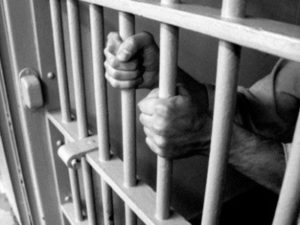
Currently there is a surge in public interest in the American prison system due to revelations of a disproportionately high prison populations compared to other countries. This interest is guided by concerns over racial factors and minor drug offenses contributing to the high numbers. However, one of the aspects of the prison experience that is largely ignored is the debt associated with incarceration. It is not uncommon for an individual to get out of jail only to find out he is saddled with a large amount of debt , including criminal fines and prison debt, that even a bankruptcy cannot take care of.
Bankruptcy is provided to debtors to get a fresh start from their debts. Bankruptcy can be used to discharge or get into favorable payment plans for debts, including criminal fines and penalties. In this blog, we will outline a few types of criminal debt and how bankruptcy can help.
Chapter 7 Bankruptcy
A Chapter 7 bankruptcy often discharges all of a Debtor’s unsecured obligations absent some exceptions. The most relevant exception here is those debts that are a “fine, forfeiture, or penalty, payable and for the benefit for a governmental unit that is not compensation for actual pecuniary loss”. This statute, 523(a)(7) of the bankruptcy code effectively takes most criminal debts out of a Chapter 7 discharge.
Below is a breakdown of criminal debts dischargeable in a Chapter 7:
- Parking fines
- Costs as a result of a victims loss (such as condition of probation to repay debt not part of restitution order)
- Juvenile restitution owed by parents
- User and service costs not part of sentence
- Costs of Prosecution (not in restitution order)
- Collection costs not owed to government agency
- Pre-trial incarceration debt
- Bail bonds owed to private company
- Interest to the extent the underlying debt is dischargeable
Below is a breakdown of criminal debts not dischargeable in a Chapter 7:
- Criminal Fines (ie. Fines owed to the court related to a misdemeanor or civil infraction, traffic tickets)
- Victim restitution
- Costs (if part of the sentence)
- Costs of Prosecution (if part of the restitution order)
- Costs of Incarceration
- Bail bonds owed to a state agency
- Interest to the extent the debt associated with the interest is non-dischargeable
Chapter 13 Bankruptcy
A Chapter 13 Bankruptcy is a payment plan where Debtors pay what they can afford for three to five years and get a discharge after the plan. A Chapter 13 bankruptcy gives debtors a “super discharge” which has a less amount of exceptions to discharge if the debtor completes their Chapter 13 Plan. A Chapter 13 Bankruptcy is a good idea for a debtor with large amount of criminal debts that are non-dischargeable in a Chapter 7. All criminal justice debt is dischargeable in a Chapter 13 except punitive fines or restitution as part of a sentence. This includes court costs, costs of prosecution and civil court and traffic fines. Even debt nondischargeable in a Chapter 13, such as punitive fines or restitution, can be paid in a favorable 36 to 60-month payment plan in a Chapter 13 bankruptcy
If you are experiencing any debt related to a crime, don’t hesitate to contact an experienced bankruptcy professional to determine the best route to take care of it. Often individuals don’t realize that there are number of great solutions to take care of their criminal debts. Give our office a call at 248-237-7979 or fill out a form for a free consultation.
